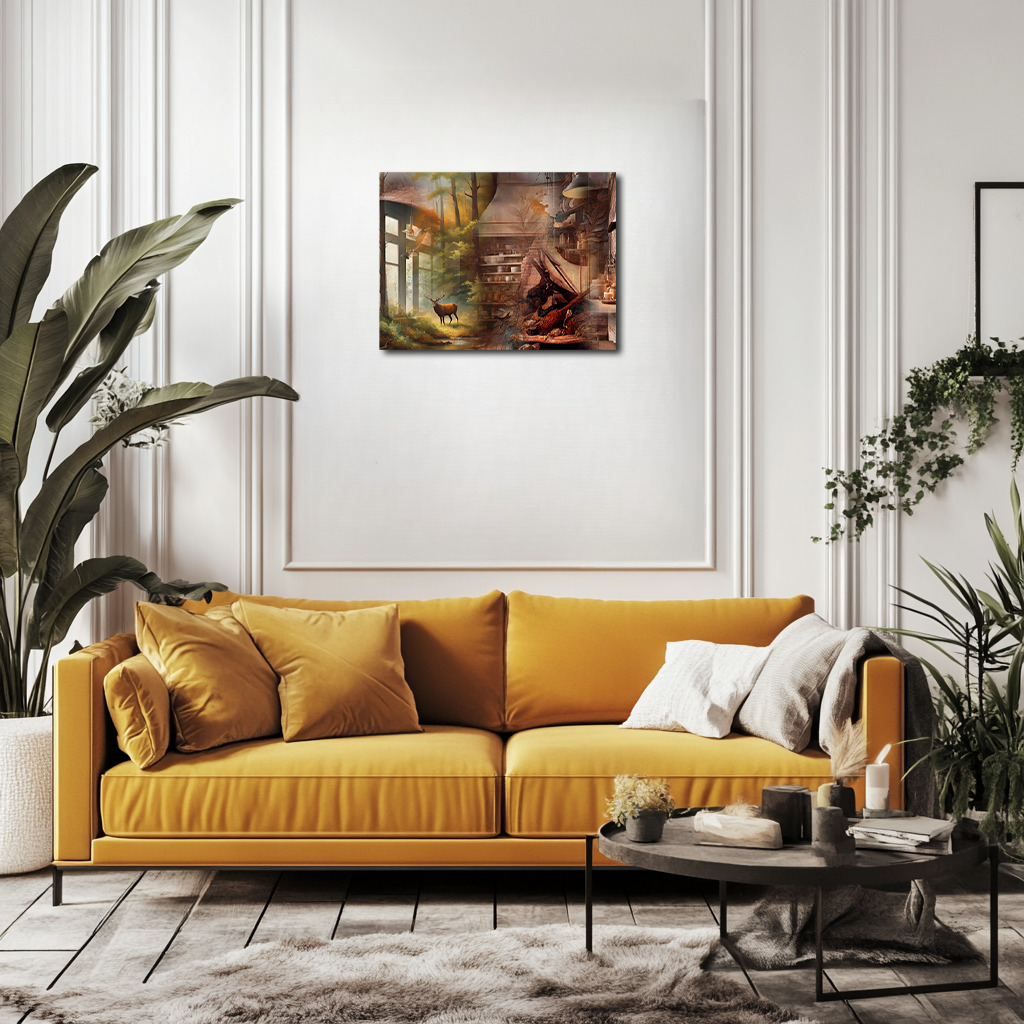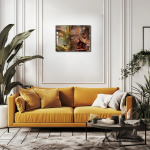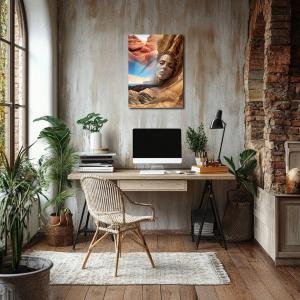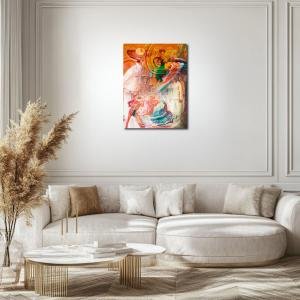Echoes of the Hunt: A Still Life Between Worlds
"Echoes of the Hunt: A Still Life Between Worlds" presents a striking contrast between nature and civilization. A regal stag stands bathed in golden light, while within the rustic interior of a kitchen, lifeless game birds serve as remnants of the hunt. This surreal narrative blurs the boundaries between the untamed and the preserved, highlighting the paradox of admiration and consumption. The composition, infused with earthy greens, warm ambers, and rich browns, suggests a cycle of life and mortality, where human presence both cherishes and dominates nature. This piece invites reflection on our connection to the wild, evoking a timeless dialogue between admiration and intervention.
Please see Below for Details…
Hotline Order:
Mon - Fri: 07AM - 06PM
404-872-4663
In this conceptual reinterpretation of Claude Monet’s Hunting Trophy , the composition weaves together two opposing worlds: the raw beauty of nature and the cultivated stillness of the human domain. On one side, a sunlit forest opens into a glass-walled conservatory, where a majestic stag stands at the water’s edge. The trees, illuminated by the golden hues of autumn, blend seamlessly with the warmth of the interior space, creating a transition between the wild and the tamed. On the opposite side, a rustic kitchen filled with preserved ingredients, pots, and wooden textures gives the impression of history—a place where nature has been transformed, harvested, and contained.
At the heart of the piece, a haunting juxtaposition unfolds: the elegant stag, still breathing in the golden light, contrasts sharply with the lifeless game birds displayed as a hunting trophy. The pheasant, once a vibrant presence in the woods, now rests plucked and lifeless, its feathers darkened and stiff. This duality suggests a meditation on life and death, survival and civilization, and humanity’s paradoxical relationship with nature—both as an admirer and a hunter.
Monet’s original composition leaned toward impressionistic realism, focusing on texture and light, while this contemporary reinterpretation introduces surrealism and symbolism. The colors play an integral role in storytelling—earthy greens and rich browns represent the untamed forest, while warm ambers and deep burgundies evoke the richness of the kitchen’s preserved ingredients. Soft golden light highlights the presence of life, while the darker corners suggest memory and loss.
As an artist, I sought to bridge the boundary between still life and landscape, blurring their edges to suggest an eternal conversation between the natural world and human intervention. The glass walls act as both a window and a barrier, reinforcing the question: do we truly belong to nature, or have we separated ourselves from it? The duality of the living stag and the hunted game reflects the cycles of existence, the way beauty and mortality intertwine, and how we, as observers, participate in both.
This piece invites contemplation—of gratitude, of responsibility, and of the delicate balance between admiration and consumption. It is a quiet yet powerful dialogue between past and present, between untouched wilderness and the cultivated spaces we call home.
Add your review
Your email address will not be published. Required fields are marked *
Please login to write review!
Looks like there are no reviews yet.








